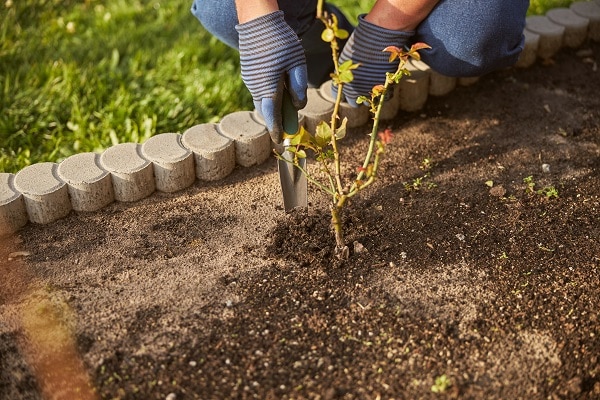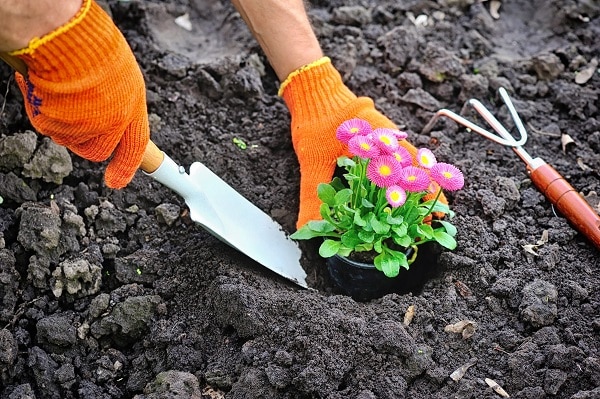Do you have a green thumb, but your plants aren’t flourishing as you’d hoped? If you’re having trouble getting your garden to grow, it might be time to look at your garden soil. Your plants need good soil to get the nutrients they need to thrive. You can do several things to improve your garden’s soil and help your plants reach their full potential. Keep reading for tips on how to improve your garden’s soil!
Contents
Test Your Soil
If you have a garden, it is important to have healthy soil. Healthy soil will provide the necessary nutrients for plants to grow well. It will also help to regulate moisture levels and prevent weed growth. One way to ensure that your soil is healthy is to test it regularly.
Testing your soil will give you valuable information about its nutrient content and pH level. Armed with this knowledge, you can take steps to improve your soil if necessary. For example, if the soil is too acidic or alkaline, you can add amendments to achieve the desired pH level. If the soil is deficient in specific nutrients, you can add fertilizer to replenish it. Regular testing is an important part of maintaining a healthy garden.
Add Compost
Every gardener knows that healthy soil is essential for a thriving garden. Good soil provides nutrients and support for plants, helps regulate moisture levels, and prevents weed growth. Over time, however, soil can become depleted of nutrients and organic matter. One way to replenish the soil is to add compost. Compost is made up of decomposed plant material and other organic matter, such as leaves and manure.
It contains various important nutrients, including nitrogen, phosphorus, and potassium. In addition, compost helps improve the structure of the soil, making it more porous and better able to retain water. As a result, adding compost to your garden soil can help ensure a healthy and productive garden for years to come.
Mulch The Soil Surface
One of the best ways to improve your garden soil is mulch the soil surface. Mulching is an easy and effective way to improve your garden soil and create a healthier growing environment for your plants. Mulching helps conserve moisture, moderate soil temperature, prevent erosion, and reduce weeds.
There are many different types of mulch available, including organic options such as bark chips, straw, and compost. Inorganic mulches such as stones and plastic can also be used. When selecting a mulch, be sure to choose one appropriate for your climate and plant type. Apply mulch around the base of plants, taking care not to pile it too high or allow it to touch the stems or leaves.
Rotate Crops Each Year
One way to improve your garden soil is to rotate your crops each year. This practice helps break up soil compaction, prevents the depletion of nutrients, and limits the spread of pests and diseases. When planning your crop rotation, it’s important to group plants together based on their needs.
For example, root vegetables like carrots and potatoes prefer deep, fertile soil, while leafy greens are best in lighter soils with plenty of drainages. By rotating your crops, you can ensure that each plant has the opportunity to thrive in ideal conditions. In addition to improving the health of your plants, crop rotation can also help keep your garden looking its best. A well-planned rotation will give you a more diverse harvest and provide visual interest throughout the growing season.
Grow Some Cover Crops
If you want healthy soil in your garden, rotating your crops each year is a great tip to follow. This practice helps prevent the build-up of pests and diseases in the soil and improves the overall fertility of the soil. When you rotate your crops, you should plant different crops in different garden parts each year. This will help to ensure that each crop has access to fresh soil and nutrients.
Rotating your crops will also help improve the drainage in your garden, as different plants have different rooting systems. As a result, rotating your crops each year is an important step in maintaining healthy garden soil.
Add Some Worms To Garden Soil
As any gardener knows, worms are beneficial to gardens. They help improve drainage and aeration while also breaking down organic matter, which improves the quality of the soil. In addition, worms produce casts, which are a rich source of nutrients for plants. As a result, adding some worms to your garden can be an easy and effective way to improve the health of your plants.
If you’re not sure how to get started, there are a few things you can do. First, try to create a garden bed at least six inches deep. This will give the worms plenty of room to move around and do their work. You can also add some organic matter, such as compost or manure, to the bed to give the worms something to eat. Finally, keep the bed moist so that the worms don’t dry out. By following these simple tips, you can create a healthy environment for your plants and help them thrive.
Stay Off Your Garden Soil
To help improve the health of your garden soil, make sure to stay off of it as much as possible. Just as you wouldn’t want to walk around in your living room with muddy shoes, you shouldn’t constantly walk on your garden soil. While it may not seem like a big deal, every time you step on your soil, you compact it and make it harder for roots to spread and water to penetrate.
In addition, when you walk on wet ground, you can create ruts that will channel water and make it difficult for plants to get the moisture they need. If you do need to walk on your soil, try to do so when it is dry, and avoid walking in the same spot over and over again. By taking these simple steps, you can help ensure that your garden soil stays healthy and productive.
Add Aged Animal Manure
Adding aged manure to your garden is a great way to improve the quality of your soil. Manure is rich in nutrients and organic matter, which can help improve drainage and aeration while also increasing the ability of your soil to retain moisture. In addition, manure can help encourage the growth of beneficial bacteria and fungi, which can improve the health of your plants.
However, it is important to use aged waste that has been properly composted. Fresh manure can contain harmful bacteria that can potentially contaminate your food. Therefore, use old manure that microorganisms have broken down before adding it to your garden. You’ll be rewarded with healthier plants and better yields come harvest time.
Start Using These Garden Soil Tips Today!
There are several easy ways to improve the quality of your garden soil. By following these simple tips, you can create a healthy environment for your plants and help them thrive. So what are you waiting for? Get out there and start using these garden tips today!







